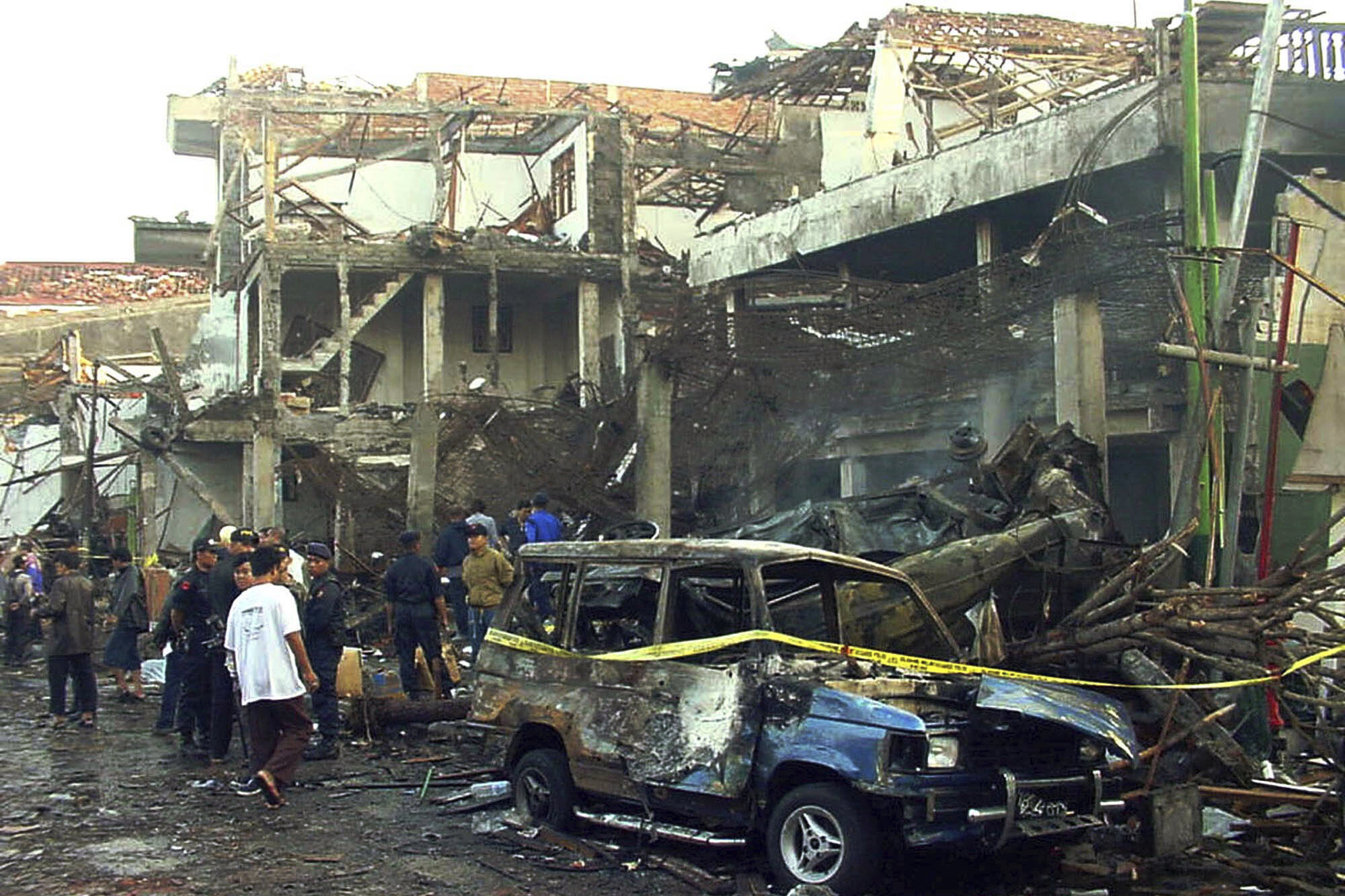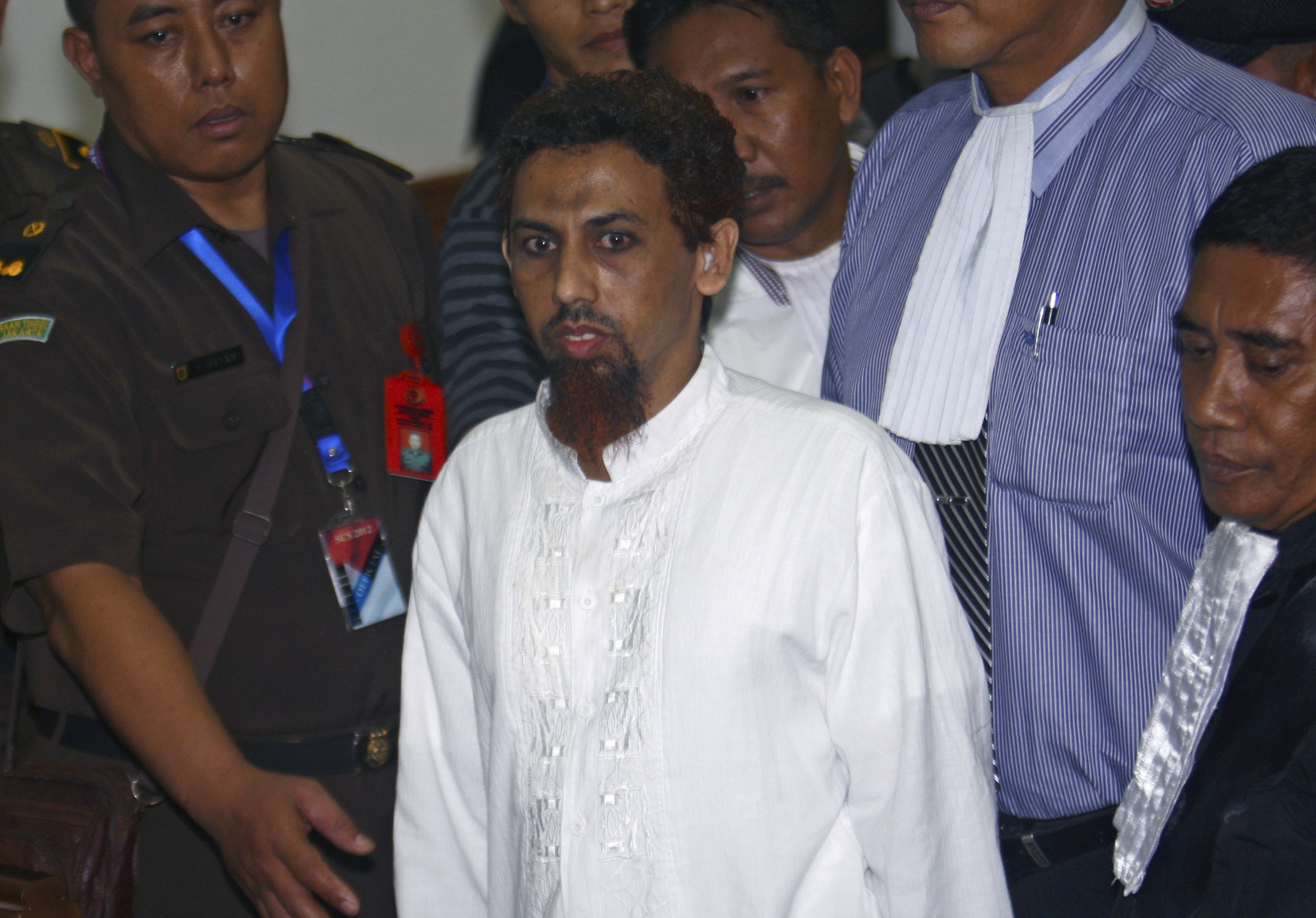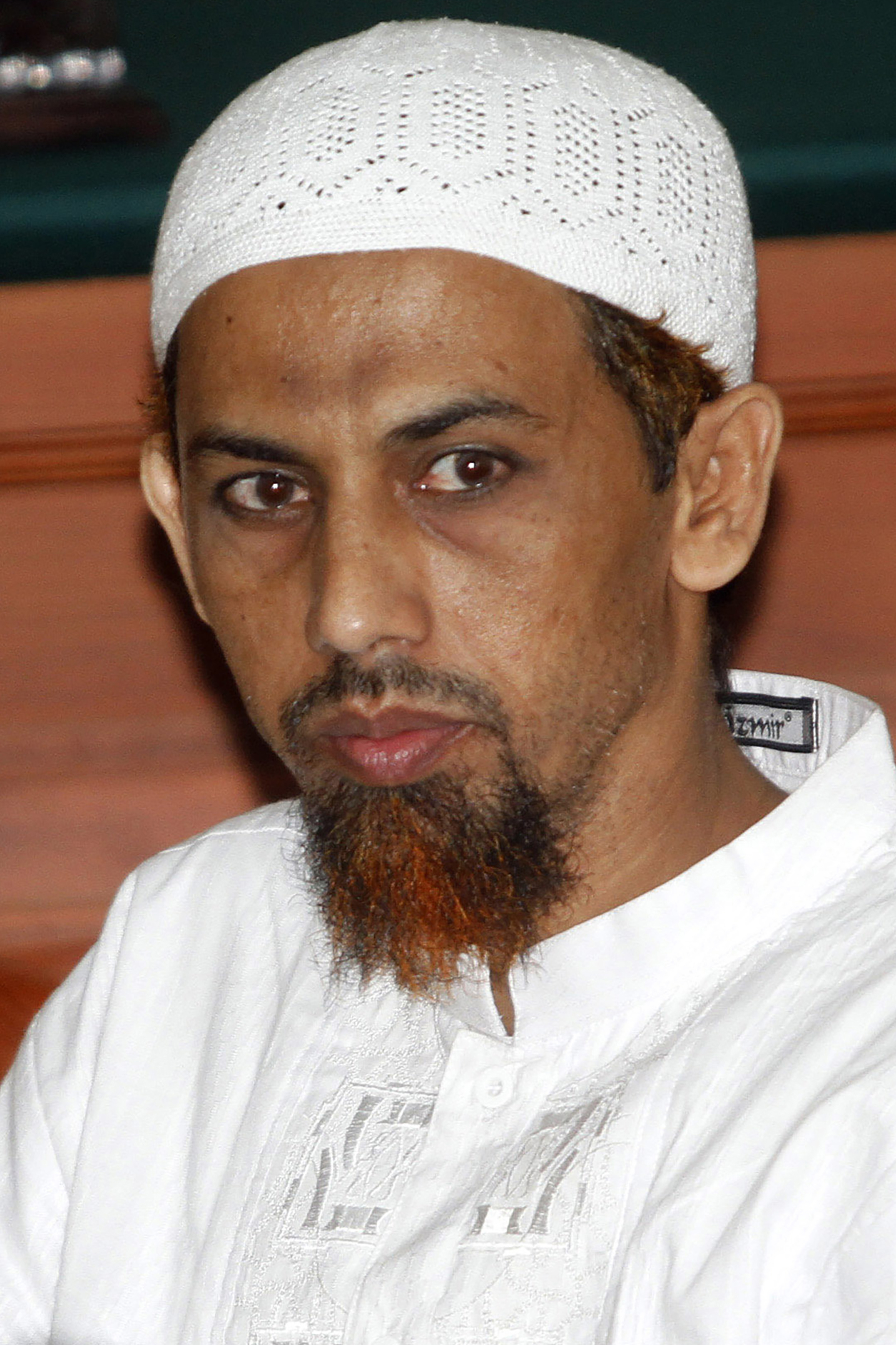The world in brief: Bali bomber paroled after half sentence
Bali #Bali

Bali bomber paroled after half sentence
JAKARTA, Indonesia — An Islamic militant convicted of making the explosives used in the 2002 Bali bombings that killed over 200 people was paroled Wednesday after serving about half of his original 20-year prison sentence despite strong objections by Australia, which lost scores of citizens in the Indonesian attacks.
Hisyam bin Alizein, also known by his alias Umar Patek, was a leading member of the al-Qaida-linked network Jemaah Islamiyah, which was blamed for the blasts at two nightclubs in Kuta Beach.
Patek was found guilty by the West Jakarta District Court of helping build a car bomb that was detonated by another person outside the Sari Club in Kuta on the night of Oct. 12, 2002. Moments earlier, a smaller bomb in a backpack was detonated by a suicide bomber in the nearby Paddy’s Pub nightclub. The attacks killed 202 people — mostly foreign tourists — including 88 Australians.
Indonesian authorities have said Patek, 55, was successfully reformed in prison and they will use him to influence other militants to turn away from terrorism.
Patek received a series of sentence reductions, often given to prisoners on major holidays for good behavior, said Rika Aprianti, spokesperson for the Corrections Department at the Justice Ministry. Most recently, he was granted a five-month reduction on Aug. 17, Indonesia’s Independence Day.
Authorities will monitor Patek and he will have to participate in a mentoring program until his parole ends on April 29, 2030, Aprianti said.
Congo rebels say coalition broke truce
DAKAR, Senegal — M23 rebels accused a government coalition in Congo on Wednesday of targeted killings and breaching a cease-fire agreed to last month, jeopardizing prospects for peace in the country’s conflict-riddled east.
M23 alleges the coalition attacked its positions in North Kivu province and was killing civilians, destroying houses and slaughtering cows, Lawrence Kanyuka, the rebel group’s political spokesperson, said.
The rebels warned in a statement that they “will not stand by” while civilians are killed and called on the international community to take concrete action and help thousands of people displaced by the violence in eastern Congo.
The statement came a day after M23 said it was ready to disengage and withdraw from areas under its control. Kanyuka told The Associated Press by phone Wednesday that the group remained open to dialogue despite its accusations and had no cease-fire preconditions other than the government stopping to attack.
“We want peace and I think we do it by dialogue,” he said.
Violence in North Kivu has soared since M23 resurfaced in November 2021 after being largely dormant for nearly a decade. Hundreds of people have died and tens of thousands displaced.
8 dead in Mexico army, cartel shootout
MEXICO CITY — Seven suspected cartel gunmen and one soldier were killed in a shootout Wednesday between the army and gang members in the northern Mexico border city of Nuevo Laredo, authorities said.
The shootings were the second time in as many weeks that large-scale violence has hit Nuevo Laredo, across the border from Laredo, Texas.
Police in the border state of Tamaulipas said that military personnel were attacked, and that no soldiers were killed, but seven presumed attackers died.
The shootout took place on a roadway about 3 miles from the U.S. border. State police said there had been “risk situations” — usually a reference to gunfire — at several points in the city, but that the outbreaks had been controlled.
Judge drops case against Saudi prince
WASHINGTON — A U.S. federal judge on Tuesday dismissed a lawsuit against Saudi Crown Prince Mohammed bin Salman in the killing of U.S.-based journalist Jamal Khashoggi, bowing to the Biden administration’s insistence that the prince was legally immune in the case.
District of Columbia U.S. District Judge John D. Bates heeded the U.S. government’s motion to shield Prince Mohammed from the lawsuit despite what Bates called “credible allegations of his involvement in Khashoggi’s murder.”
A team of Saudi officials killed Khashoggi inside the Saudi consulate in Istanbul in 2018. Khashoggi, a columnist for The Washington Post, had written critically of the harsh ways of Prince Mohammed, Saudi Arabia’s de facto ruler.
The U.S. intelligence community concluded the Saudi crown prince ordered the operation against Khashoggi. The killing opened a rift between the Biden administration and Saudi Arabia that the administration has tried in recent months to close, as the U.S. unsuccessfully urged the kingdom to undo oil production cuts in a global market racked by the Ukraine war.
Bates expressed “uneasiness” with the circumstances of Prince Mohammed’s new title, and wrote in Tuesday’s order that “there is a strong argument that plaintiffs’ claims against bin Salman and the other defendants are meritorious.”
But the government’s finding that Prince Mohammed was immune left him no choice but to dismiss the prince as a plaintiff, the judge wrote. He also dismissed the two other Saudi plaintiffs, saying the U.S. court lacked jurisdiction over them.
 FILE – Police officers inspect the ruins of a nightclub destroyed by a bomb blast in Kuta, Bali, Indonesia, on Oct. 13, 2002. Umar Patek, a bombmaker in the 2002 Bali attacks that killed 202 people, was released from an Indonesian prison on parole Wednesday, Dec. 7, 2022, after serving half his 20-year sentence, despite the opposition of Australia’s prime minister, who described him as “abhorrent.” (AP Photo, File)
FILE – Police officers inspect the ruins of a nightclub destroyed by a bomb blast in Kuta, Bali, Indonesia, on Oct. 13, 2002. Umar Patek, a bombmaker in the 2002 Bali attacks that killed 202 people, was released from an Indonesian prison on parole Wednesday, Dec. 7, 2022, after serving half his 20-year sentence, despite the opposition of Australia’s prime minister, who described him as “abhorrent.” (AP Photo, File)  FILE – Convicted Muslim militant Umar Patek Umar Patek pauses during the police reenactment of the scenes leading to the 2002 Bali bombing, in Denpasar, Bali Indonesia, Thursday, Oct. 20, 2011. A bombmaker in the 2002 Bali attack that killed 202 people has walked free from an Indonesian prison Wednesday, Dec. 7, 2022 after serving half of a 20-year sentence, despite upsetting Australia’s leader who described him as “abhorrent.” Umar Patek, 55, whose real name is Hisyam bin Alizein, was a leading member of the al Qaida-linked network Jemaah Islamiyah. (AP Photo/Firdia Lisnawati, File)
FILE – Convicted Muslim militant Umar Patek Umar Patek pauses during the police reenactment of the scenes leading to the 2002 Bali bombing, in Denpasar, Bali Indonesia, Thursday, Oct. 20, 2011. A bombmaker in the 2002 Bali attack that killed 202 people has walked free from an Indonesian prison Wednesday, Dec. 7, 2022 after serving half of a 20-year sentence, despite upsetting Australia’s leader who described him as “abhorrent.” Umar Patek, 55, whose real name is Hisyam bin Alizein, was a leading member of the al Qaida-linked network Jemaah Islamiyah. (AP Photo/Firdia Lisnawati, File)  File – Indonesian Muslim militant Umar Patek is escorted by prosecutors and plain-clothed police officers as he leaves the courtroom after his hearing at West Jakarta district court in Jakarta, Indonesia, Monday, May 21, 2012. A bombmaker in the 2002 Bali attack that killed 202 people has walked free from an Indonesian prison Wednesday, Dec. 7, 2022 after serving half of a 20-year sentence, despite upsetting Australia’s leader who described him as “abhorrent.” Umar Patek, 55, whose real name is Hisyam bin Alizein, was a leading member of the al Qaida-linked network Jemaah Islamiyah. (AP Photo/Tatan Syuflana, File)
File – Indonesian Muslim militant Umar Patek is escorted by prosecutors and plain-clothed police officers as he leaves the courtroom after his hearing at West Jakarta district court in Jakarta, Indonesia, Monday, May 21, 2012. A bombmaker in the 2002 Bali attack that killed 202 people has walked free from an Indonesian prison Wednesday, Dec. 7, 2022 after serving half of a 20-year sentence, despite upsetting Australia’s leader who described him as “abhorrent.” Umar Patek, 55, whose real name is Hisyam bin Alizein, was a leading member of the al Qaida-linked network Jemaah Islamiyah. (AP Photo/Tatan Syuflana, File)  FILE – Indonesian Muslim militant Umar Patek looks on during his trial in Jakarta, Indonesia, Thursday, March 8, 2012. A bombmaker in the 2002 Bali attack that killed 202 people has walked free from an Indonesian prison Wednesday, Dec. 7, 2022 after serving half of a 20-year sentence, despite upsetting Australia’s leader who described him as “abhorrent.” Umar Patek, 55, whose real name is Hisyam bin Alizein, was a leading member of the al Qaida-linked network Jemaah Islamiyah. (AP Photo/Tatan Syuflana, File)
FILE – Indonesian Muslim militant Umar Patek looks on during his trial in Jakarta, Indonesia, Thursday, March 8, 2012. A bombmaker in the 2002 Bali attack that killed 202 people has walked free from an Indonesian prison Wednesday, Dec. 7, 2022 after serving half of a 20-year sentence, despite upsetting Australia’s leader who described him as “abhorrent.” Umar Patek, 55, whose real name is Hisyam bin Alizein, was a leading member of the al Qaida-linked network Jemaah Islamiyah. (AP Photo/Tatan Syuflana, File)